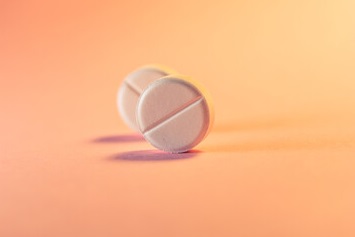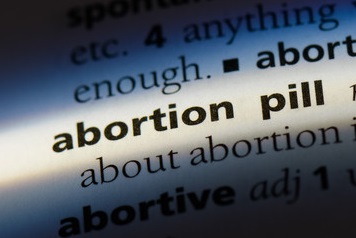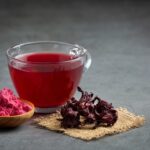
Misoprostol is a prescription drug that is usually prescribed on its own and sometimes combined with mifepristone for various reasons such as gastric ulcer treatment, medical abortion or induced labour.
The use of misoprostol as an abortion pill is not uncommon, and there are reasons for it. However, the decision to use misoprostol is not taken lightly and does take a toll on the body.
In such cases, the best thing to do is to keep the body strong and healthy by being intentional about your diet. Your post-treatment diet can significantly affect your overall health and recovery.
This article discusses what foods to avoid after taking misoprostol (abortion pill). Your dietary choices determine how well you recover, and this article will guide you in making more informed choices.

Misoprostol is an oral prescription medicine used to treat and reduce gastroduodenal damage or gastric ulcers induced by non-steroidal anti-inflammatory drugs (NSAIDs). However, some studies suggest that there is no conclusive evidence in controlled studies about the ulcerogenicity of most NSAIDs and their relationship with gastric bleeding and ulceration.
Misoprostol is also used off-label for various obstetrics and gynecology practices, including medical abortion and induced labour. For clinically-approved abortions, misoprostol is used together with mifepristone.
A study revealed that misoprostol is also used for the medical management of miscarriage, treating postpartum hemorrhage, and cervical ripening (the process of opening and softening the cervix) before labour or surgery.
The dosage and duration will differ depending on what misoprostol is being used for.

Before using misoprostol, consult a doctor or talk to a healthcare professional about all the (mild and severe) side effects that you might experience.
The side effects of misoprostol can be mild or severe and are entirely dose-dependent. The severe side effects of misoprostol are not very common but still happen. However, most side effects typically resolve within a few days or weeks.
If the side effects persist and become more severe or life-threatening, visit the nearest hospital for immediate medical attention. Side effects of misoprostol include:
More severe side effects include serious allergic reactions like swelling under the skin (eyelids, feet, lips, or hands), throat, mouth, or tongue swelling, dehydration caused by severe diarrhea, and potential harm during pregnancy.

Motherhood is an important moment in a woman’s life. However, due to certain reasons, this significant moment may have to be put to an end. Misoprostol is a very effective abortion pill used off-label for medical abortion. It is the most common and effective abortion pill, typically combined with mifepristone to terminate early pregnancies, usually up to 11 weeks or in the first or second trimester.
Although misoprostol is medically approved to treat gastric ulcers caused by NSAIDs, it is sometimes used off-label for medical abortion. A drug is considered off-label when it is used for purposes other than what it is prescribed for.
This abortion pill is usually administered in the first trimester or second trimester to end an early pregnancy. For medical abortion, misoprostol can be swallowed, placed between the cheeks and gum, or inserted through the vagina.
Misoprostol induces pregnancy loss by mimicking the prostaglandin hormone that causes the uterus to contract. Misoprostol can contract and empty the uterus when taken during pregnancy. According to a study, the success rate (efficacy) for misoprostol as an abortion pill is 95% to 98%, with a failure of 1%.
During medical abortion, there is a lot of cramping and heavy bleeding as the pregnancy is ejected. As a result, other transient side effects like dizziness, fatigue, nausea, and deficiency in essential minerals will manifest.
Therefore, patients are advised to consult a licensed doctor or experienced medical professionals for sound counseling about the medication, options, and dosage.

Using misoprostol as an abortion pill has potential risks and side effects, and certain foods can worsen the side effects of misoprostol. Therefore, it is imperative to be intentional about your dietary choices. Foods to avoid after taking misoprostol include:
One of the side effects of misoprostol is (mild or severe) diarrhea and vomiting, which cause dehydration. Caffeinated beverages or drinks like tea and coffee worsen dehydration by increasing urination, especially if you don’t drink enough water. When consumed excessively, caffeine can irritate the stomach and cause gastrointestinal discomfort.
Misoprostol increases stomach acid and causes gastrointestinal discomfort, leading to gastrointestinal side effects like cramps and vomiting. Spicy and acidic foods (like tomatoes, pineapples, peaches, oranges, and citrus fruits) can aggravate the situation. Avoiding acidic and spicy foods after taking misoprostol is in your best interest.
In the weeks following a medical abortion, one of the foods to avoid after taking misoprostol is junk food. The body loses a lot of energy and minerals after an abortion, so the body needs nutrients to compensate and build energy. Junk foods (like cakes, burgers, biscuits, or pizza) do not have nutrients to replenish the ones that have been lost.
Additionally, junk foods contain high amounts of fats and salt, which contribute to or encourage inflammation, increase gastrointestinal discomfort, and impede recovery.
Some patients may experience lactose intolerance after taking misoprostol. To play it safe, include lactose-free alternatives in your diet.
In the recovery process (after taking misoprostol) it is crucial to keep your blood sugar level steady by avoiding foods with high sugar and refined carbs. Refined carbs like pasta, white bread, or sweet desserts have high unhealthy fat content and low fluid and fiber content which can lead to constipation.
Foods with high sugar, like ketchup, low-fat yogurt, ice cream, pastries, or cakes, can induce mood swings, exacerbate side effects, and mess with your energy.
Foods you can eat after taking misoprostol include:
Women experience excessive bleeding after abortion, which may last for weeks. This can lead to a deficiency in iron, causing anemia. Iron-rich foods like liver, fish, poultry, and red meat reduce the risk of anemia and cure fatigue from blood loss.
After taking misoprostol, green vegetables and fruits should become part of your diet. Green vegetables contain high iron and vitamin A content, and fruits like bananas and ripe pears are good sources of potassium.
Whole grains like cereals, oats and oatmeal, brown rice, or quinoa are good sources of fibre, minerals, and vitamins. They replenish lost nutrients and keep the digestive system healthy by relieving gas conditions and indigestion.
Drinking enough water keeps the body hydrated, and herbal teas like ginger tea ease digestive discomfort.
Protein foods like eggs, chicken, almonds, beans, or fish help act as a structural component and help repair worn-out tissues. During abortion, the uterus lining sheds. Proteins repair the damage and promote quick recovery.
Seafoods like lobster, shrimp, and sardines are primary sources of omega-3 fatty acids and are highly nutritious in vitamins, protein, and minerals.
It is not safe to take alcohol for at least 24 hours after taking misoprostol for medical abortion. However, there is no established interaction between alcohol and misoprostol. Nevertheless, it is better to avoid it altogether.
Misoprostol is typically prescribed to decrease the risk of gastric ulcers, whereas alcohol increases this risk. So, drinking alcohol can make it difficult to tell if misoprostol is actually working.
Also, alcohol increases urination and loss of fluids, which leads to dehydration. Dehydration increases the risk of constipation.
Additionally, alcohol can lead to irritation, bloating, and inflammation and may worsen side effects like dizziness. After taking misoprostol as an abortion pill and the pain medications that follow, drinking alcohol may cause stomach bleeding.
Therefore, speak with your doctor before taking misoprostol.
The use of misoprostol as an abortion pill for medical abortion is widespread these days among young adult females.
Although it is mainly prescribed for treating gastric ulcers and other gynecology uses, misoprostol is used off-label for medical abortion. The decision to take misoprostol as an abortion pill has its consequences and should not be taken lightly.
Abortion (medical or not) drains the body, so there are certain foods you must incorporate into your diet to regain the nutrients your body has lost and aid recovery. With the help of this article, you can make informed dietary choices by knowing which foods to avoid after taking misoprostol.
There is no one-size-fits-all approach to dieting, and finding the right foods to eat can be tasking. Therefore, it is highly recommended that you see a registered dietitian on KompleteCare. These professionals will give you sound counsel and develop a dietary plan to promote recovery.
Disclaimer: Even though all information in this article is factually comprehensive and up-to-date, the information in this article should not be used as a substitute for your doctor’s advice. Always consult with a licensed healthcare professional or doctor before taking misoprostol.
NutritionFebruary 5, 2025
MedicationFebruary 5, 2025
healthcareFebruary 27, 2025








